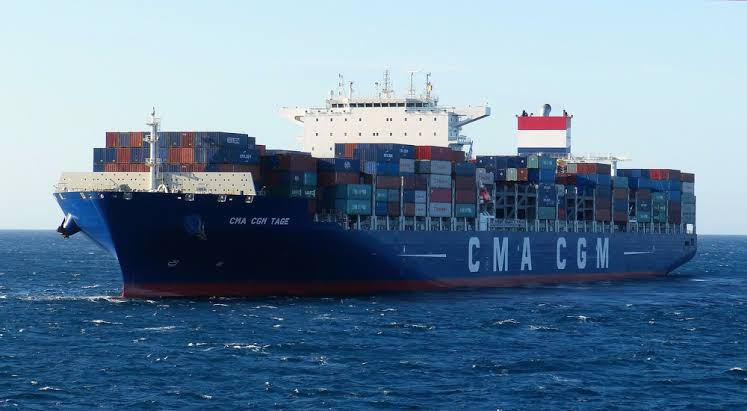The recent surge in attacks by Yemen’s Houthi rebels on ships traveling through the Red Sea is significantly impacting global oil shipments. According to a report released Tuesday by the Energy Information Administration (EIA), the total volume of crude oil and refined products shipped along the longer route around Africa’s Cape of Good Hope has increased by 47% since the attacks began.
Shifting Routes to Avoid Houthi Attacks
Traditionally, a significant portion of global oil shipments traveled through the Red Sea and the Suez Canal. This route offers a crucial shortcut, reducing travel time and costs between Asia, the Middle East, and Europe. However, due to security concerns arising from the Houthi attacks, many shipping companies are opting for the longer yet safer route around Africa. This shift has resulted in a substantial rise in shipping costs, as the Cape of Good Hope route adds significant distance to journeys.
The EIA report, based on ship-tracking data from Vortexa, reveals that roughly 8.7 million barrels per day (bpd) of crude oil and refined products were shipped along the southern Africa route during the first five months of 2024. This represents a significant increase compared to the 2023 average of 5.9 million bpd. Notably, refined products account for a major portion of this growth.
Impact on Major Oil Producers and Consumers
The report further highlights how the rerouting of shipments is impacting major oil producers and consumers. Countries like Saudi Arabia and Iraq are now exporting more crude oil to Europe via the Cape of Good Hope route, bypassing the Red Sea and Suez Canal. This shift accounts for roughly 15% of the total increase in shipments around Africa.
The EIA also notes a rise in refined product exports from Asia and the Middle East to Europe, with these shipments being diverted around Africa. This trend represents approximately 29% of the overall increase in trade along the southern route. The United States is another nation affected by the Red Sea disruptions. The EIA reports an increase of about one-third, or just over 600,000 bpd, in total U.S. trade around the Cape of Good Hope. This involves crude oil and refined products received from or shipped to Asia and the Middle East.
The increased reliance on the Cape of Good Hope route has significant implications beyond just shipment times. The longer route translates to higher fuel consumption for ships, pushing up overall transportation costs. This can have a cascading effect on the global economy, potentially leading to higher prices for consumers on a range of goods.
The ongoing attacks in the Red Sea are raising concerns about the stability of global oil supplies. The international community is urging all parties involved in the Yemen conflict to de-escalate tensions and find a peaceful resolution. The continued disruption of Red Sea shipping lanes could have a negative impact on the global economy, making a diplomatic solution increasingly crucial.
Russia Diverts Oil Exports Amidst Tensions
The report additionally highlights an interesting trend involving Russia. With the Houthis justifying their attacks as acts of solidarity with Palestinians over the Gaza conflict, there have been frequent attacks on Russian vessels. In response, Russia has significantly increased crude oil and refined product exports to Asia via the Cape of Good Hope route. This includes volumes from the Caspian Pipeline Consortium, with nearly four times the amount being shipped compared to the same period in 2023. This move by Russia suggests a potential recalibration of their oil export strategy in light of the ongoing tensions in the Middle East.
The situation in the Red Sea remains fluid, and it’s unclear how long the attacks by the Houthis will continue. The increased reliance on the Cape of Good Hope route is likely to persist until a sense of security is restored in the Red Sea. This situation underscores the importance of finding a peaceful resolution to the conflict in Yemen, not just for regional stability but also for the smooth functioning of the global oil
Source: Reuters



